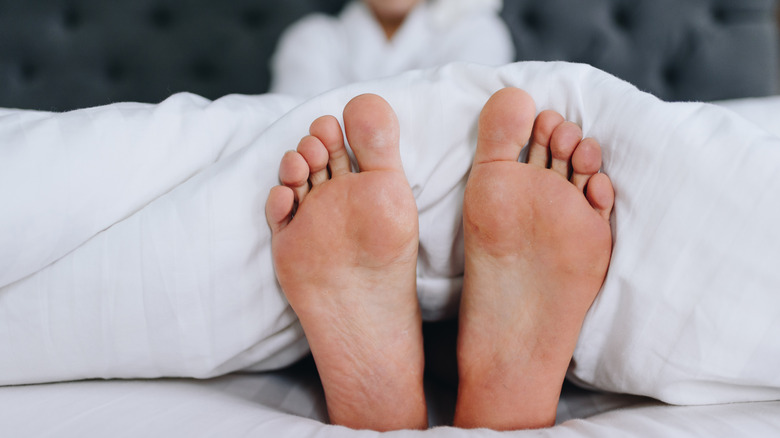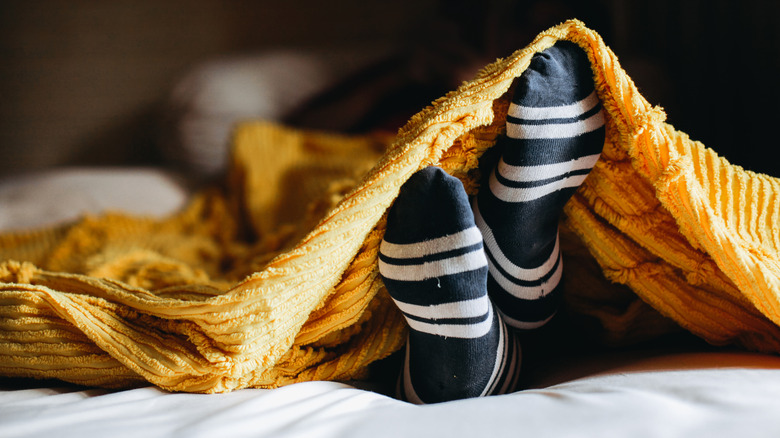Here's Why You Might Have Cold Feet In The Morning
It's not unusual to wake up with cold feet during the winter months. However, if you find that you're routinely waking up with chilly toes — and the weather isn't to blame — are your cold feet cause for concern?
It's not uncommon for the average person to get cold feet. In fact, Harvard Health Publishing reports that having cold feet may simply be a result of genetics. Though our core body temperature sits at around 98.6 degrees Fahrenheit, this number can fluctuate throughout the day and night, reports Vox. In fact, our body temperature can drop as much as 2 degrees while we're snoozing. To compensate for this decrease, our body reroutes blood flow from our extremities towards our essential organs by constricting the blood vessels in our hands and feet, which can leave us with chilly toes (via Harvard Health Publishing).
"Cold hands and feet are a common complaint," vascular medicine specialist Dr. G. Jay Bishop states via the Cleveland Clinic, adding, "But generally, when this happens in young healthy people, it isn't anything to worry about."
How to keep your feet warm throughout the night
In some cases, cold feet may be a symptom of a health condition known as Raynaud syndrome in which the arteries in the fingers and toes constrict too quickly in response to cold, producing color changes in the skin such as white, red, or blue (per Cleveland Clinic). In the absence of any underlying health conditions, Raynaud syndrome is not considered dangerous. However, in the event of accompanying symptoms such as pain, fever, skin tightening, nail changes, or poorly healing sores or cracks, be sure to consult with your physician.
So how do we keep our feet snug as a bug in a rug during the night? Healthline reports that warming our feet up before bed can actually ready our brain for sleep. To do so, experts suggest wearing a pair of wool socks to bed or layering several pairs of socks as needed (via Cleveland Clinic). Avoid anything too constricting, as this can hinder circulation. Additionally, you may want to steer clear of anything that radiates heat, such as a heating blanket or hot water bottle, as these can increase your risk for burns.


